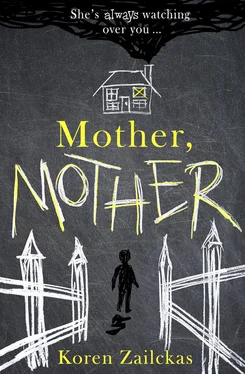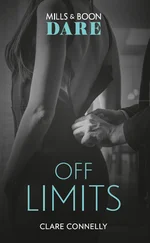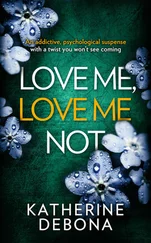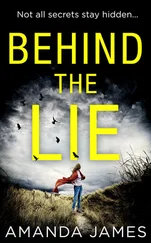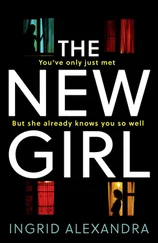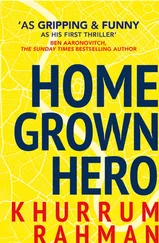“How many seeds did you eat? How did they make you feel?”
“Five, I think? And the water they’d been soaked in. I felt nauseous, mostly. And my thighs cramped up. I guess I also felt giddy and, later, spaced out and trippy. But then my family came after me.” Violet felt her eyes fill and run over. “Or maybe I lost it on them?”
After school, she and Imogene had gone to the Fields’ house, where Imogene’s brother, Finch, and his best friend, Jasper, had shown them a mason jar filled with water, lemon juice, and the ground-up remains of the Heavenly Blue morning glory seeds that they had pulverized in the Fields’ coffee grinder. Mr. and Mrs. Field, who preferred to go by Beryl and Rolf, had been away at the studio apartment they kept in Manhattan, where they were meeting with a new oncologist.
Finch assured everyone that the seeds were organic.
Imogene suggested adding ginger, just in case the concoction made them feel nauseated.
Jasper questioned whether extraction was potent enough, so they spooned four or five seeds into each glass like a garnish.
The taste hadn’t been sickening. It had reminded Violet of wheatgrass. Jasper insisted it tasted more like very weak hot chocolate. It didn’t work at first.
“What happened when you lost it on your family?” the nurse asked.
“I was looking at my mom, and she was a different person. But it was also like she’d always been a different person. Like, at the end of every day, when no one else is around, she unzips her suit of flesh. I know it was just the acid distorting things, but as, like, an analogy it holds.” Violet rubbed her eyes. The sockets ached.
“How does your family get along as a whole?”
“We don’t.”
“Let’s go back to what happened tonight. I know you’re shaken up, but this is important. Do you think you can tell me more about the assault?”
The word assault made Violet feel turned upside down, kicked in the stomach, and orphaned at the same time. She was in mortal terror of her mother. She felt guilty about Will. She was scared she’d said something she couldn’t take back, and committed a crime that would fit her for an orange prison jumpsuit. Even trying to remember what happened felt like a threat to her physical safety.
“Have you ever attempted suicide?” the counselor asked.
“I suppose. Technically.” Still, Violet tried to explain that the Jainist fast to death wasn’t really suicide. “It’s kind of like a peaceful way to give up your body. Not an act of despair, but an act of hope. You’re not giving up on life, you’re just passing into the next stage of it.”
It made sense to Violet, but the counselor looked dubious.
“Do you consider yourself ‘eating disordered’?”
“Not really. It’s more like a detox gone too far. I just wanted to feel pure, like all the venom’s been sucked out of me.”
Sallekhana was gradual. First, you fasted one day a week. Then, you ate only on alternate days. Next, you gave up foods one by one: first fruits, then vegetables, then rice, and then juice. After that, you drank only water. Then, you drank it only on alternate days. In the final step, you gave up water too, erased your bad karma, and hoped to shit you weren’t reborn into another nightmare.
Violet looked down at her hands. This was a newly acquired nervous tic. A month into fasting, her hands went cold and her fingernails started to turn blue. Ever since, Violet had been hiding them under thick layers of Night Sky, a sparkly navy polish.
Within the hospital’s cinder-block walls, it was impossible to know whether it was dusk or dawn. “What time is it?” Violet asked.
“Ten p.m. Let me ask you again. Did you attack your brother with a knife?”
“I don’t remember. Everyone keeps asking me that. When are they going to stop asking? I keep saying, I don’t know.”
“Do you think you need to be admitted to the hospital?”
All the feeling trickled out of Violet’s arms. An old childhood fear—claustrophobia—set in.
“Please don’t make me stay,” Violet whispered.
“I know you’re frightened. People come here, and the idea of the hospital is scary. But you’re going through some difficult things, and the people here are trained to handle difficult things. You’re on a journey. The lights are out right now, but they will come on again. For the moment, I think we should give you a bed and a pill to help you get to sleep.”
“I’m afraid to go home,” Violet confessed. “But I don’t want to stay here.”
“I know, honey. But according to what your parents told us, you said and did some things that make you a threat to yourself or others. So we need to keep you here.”
The walls of the office seemed to constrict. Violet cast a helpless glance at the Audubon nature calendar that hung on the wall behind the nurse’s shoulder. October’s photo was a redwood forest—the kind of woodland scene that could make a person feel very awed and alone.
“For how long?” Violet asked.
“The next seventy-two hours.”
“There’s one more thing I haven’t told you.”
The counselor crossed her arms and blinked once.
Violet exhaled in a great gush. “I saw my sister last night.”
THEY DIDN’T USUALLY have school on Saturdays, but they’d fallen behind on account of prepping for Will’s coming math Regents exam. The state said students with disabilities only had to score fifty-five out of a possible hundred percent in order to pass. But it was important to both Will and his mom that he score at least a seventy-five. That was the grade that indicated “college readiness,” and it was Josephine’s endgame that Will graduate early and go on to Columbia in four years’ time.
“We don’t have to push ourselves too hard today,” Josephine said. “But a little bit of social studies will take our minds off last night. After that, I have to drive to Violet’s hospital and sign some forms. Does that sound okay?”
Will nodded. He adjusted his costume beard over the bruise on his chin. He fashioned his sister’s black bowed headband around his neck like a tie.
Ever since the controversy at Stone Ridge Elementary last fall, Will really had come to think of the breakfast nook as his new school. This had required some adjusting, of course. Gone were the familiar sights and smells of learning: pencil shavings, lunch-box rot, the stab-and-drag sound of chalk against a blackboard.
Sure, Will still nursed a few aching, phantom limbs: recess, book fairs, games of Heads-Up, 7-Up with lazy substitute teachers. When he confessed to missing weekly job assignments like “board eraser” or “math shelf helper,” his mom put him in charge of keeping her orchids evenly moist. When he got word of his former classmates’ field trip to watch Othello at the Rosendale movie theater, Josephine had, in her words, “done one better.” She’d driven Will to the city to see the real deal at the Met. She’d even bought him a new brass-buttoned blazer for the occasion.
When Will realized he’d never be in another school play, his mother had the idea to organize a one-man performance of Edgar Allan Poe’s “Annabel Lee.” He’d recited it in the Hursts’ formal sitting room, for an audience of Perrier-sipping ladies, mainly Josephine’s various girlfriends and golf partners from the Rondout Country Club. The verse had wormed its way into his long-term memory, and months later, Will still found himself crooning it under his breath:
The angels, not half so happy in heaven,
Went envying her and me —
Yes!—that was the reason (as all men know,
In this kingdom by the sea)
Читать дальше
